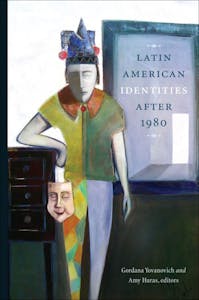Latin American Identities After 1980 takes an interdisciplinary approach to Latin American social and cultural identities. With broad regional coverage, and an emphasis on Canadian perspectives, it focuses on Latin American contact with other cultures and nations. Its sound scholarship combines evidence-based case studies with the Latin American tradition of the essay, particularly in areas where the discourse of the establishment does not match political, social, and cultural realities and where it is difficult to uncover the purposely covert.
This study of the cultural and social Latin America begins with an interpretation of the new Pax Americana, designed in the 1980s by the North in agreement with the Southern elites. As the agreement ties the hands of national governments and establishes new regional and global strategies, a pan–Latin American identity is emphasized over individual national identities. The multi-faceted impacts and effects of globalization in Bolivia, Ecuador, Mexico, Cuba, Brazil, Chile, Argentina, and the Caribbean are examined, with an emphasis on social change, the transnationalization and commodification of Latin American and Caribbean arts and the adaptation of cultural identities in a globalized context as understood by Latin American authors writing from transnational perspectives.
